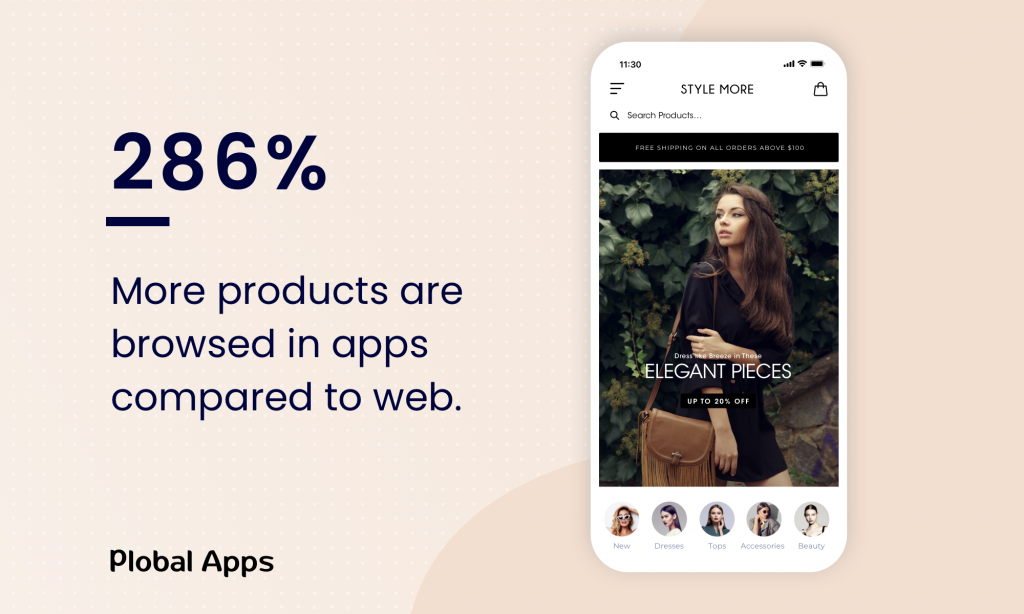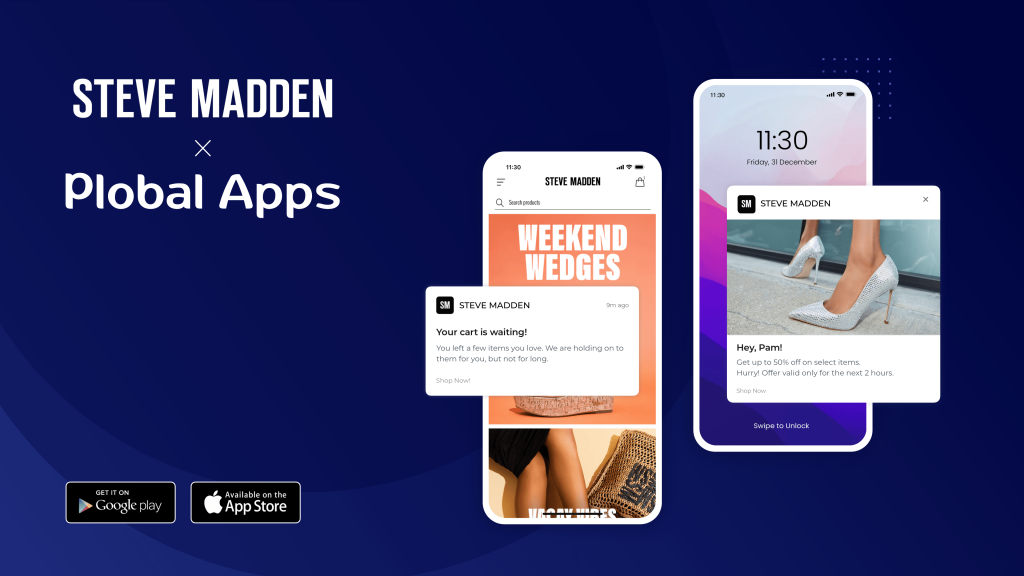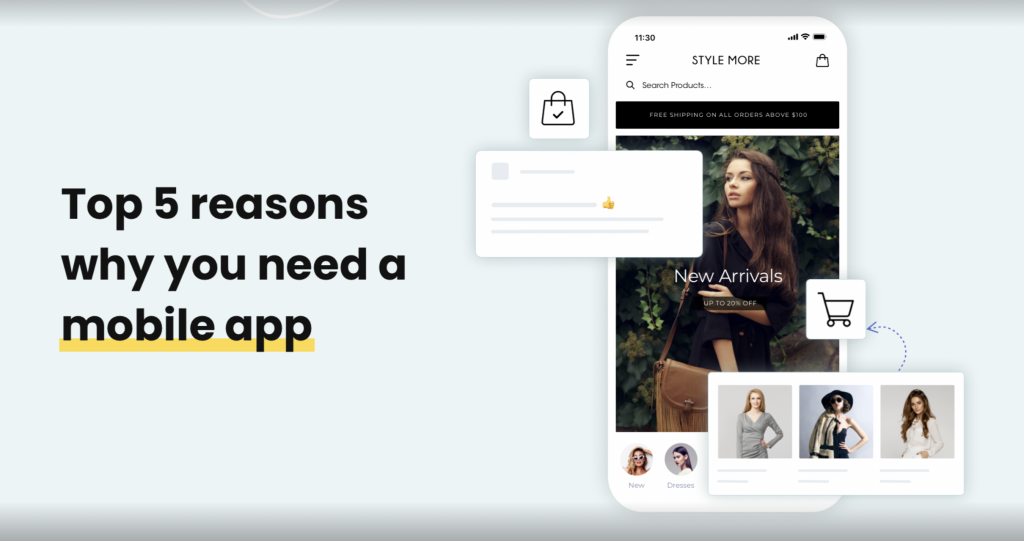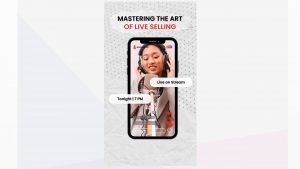While most apparel brands suffered a decline in sales in 2020, Nike’s digital revenue skyrocketed by a staggering 84% in the third quarter, the main driver for these incredible numbers was their app-based, direct-to-consumer strategy led to record-breaking sales, retention, and brand recognition.
So, if you’re wondering if your eCommerce brand needs to launch a mobile app, here are five indisputable reasons why you’re leaving money on the table without one.
Top 5 reasons why your Shopify store needs a mobile app
Shopify recently released a report stating that since the third quarter of 2019, 81% of traffic has been coming from mobile devices. And in 2021, 57% of online purchases were made in-app.
Now that we agree that mobile commerce isn’t going anywhere, let’s talk about the five key reasons you need to enhance your customers’ buying experience with a mobile app.
Mobile apps are the most effective retention tool.
Mobile apps offer shopping experiences miles ahead of traditional, mobile web shopping experiences.

Does this sound familiar? Your customers love your brand. You get a good amount of site visitors and items added to the cart, but too many coaches are abandoned at checkout.
If you don’t have a mobile app and rely only on your website as an online sales channel, you could lose customers at the following stages in the buyer journey.
Where you could be losing customers before checkout
- Slow page loading speeds are causing your customers to give up before checkout. Many e-commerce brands lose 7% of sales because of slow page loading speeds.
- Customers can’t find their buyer preferences saved and need to spend signing up or logging in, curating the search results to see what they’re looking for every time they visit your online store.
- Complex checkout flows are the quickest ways to get customers to bounce from your site. KISS (Keep it simple, stupid).
- You’re not using intelligent recommendations to suggest other products they should be interested in.
- Abandon cart Retargeting is adequate, but the costs are only rising, and cookies are on their way out.
Why mobile apps improve your customers’ shopping experience
Mobile apps alleviate all these issues with a clean customer journey. Because apps live natively on your customers’ phones, they’re much faster than mobile web. Data transmission is as much as 10x faster between a server and a mobile app.
Your native app can also use its in-app interactions to create highly personalized shopping experiences. Let your customers pick up where they left off, suggest items you know they’ve looked at before, and make checkout as simple as one click.
Time is money, and your customers don’t want to waste any on a mediocre shopping experience. With a mobile app, you can have optimized one-click checkouts. How about that for efficiency?
Abandon carts are the CAC killer, and with your app’s native push notifications, you can send highly personalized messages to remind them to complete checkout.
And lastly, intelligent product recommendations significantly increase AOV, improve repurchases, and drive impulse buys.
Mobile apps give you a direct marketing & sales channel
The advantage of an owned marketing & sales channel is that you gain complete control of when to send what message and to which specific, carefully categorized subset of your target audience. A mobile app is a channel you own and independently are in charge of.
With mobile app push notifications, you can reach out to your customers at the right time – when buying intent is high. You can send super-relevant push notifications based on user behavior and app performance, geographical location, purchase history, and more.
When you’re not left at the mercy of unreliable algorithms of third-party channels, you can be confident in the accuracy of your messaging and provide genuine value to your customers. Mobile web, email, or social media does not allow you to do this; only a mobile app allows efficient customer communication where push notifications come as welcome surprises rather than annoying interruptions.

Your conversion rates go up
Apps are designed to deliver mobile shopping experiences that convert. Picture this: A customer walks into your store. You get to know and understand what they want as you interact with them. You then use this information to make product recommendations and can guide them to purchase an item they’re satisfied with. When a customer becomes a regular, you’ve retained their knowledge and can provide quick and efficient service that almost always converts.
Apps work in the same way. Once you collect user and app interaction data the first time a customer interacts with your app, you can leverage this data to mimic the efficiency of an expert personal shopping assistant. You can have your app integrate with a full suite of popular payment options like Apple Pay that securely saves payment information and streamline the checkout process too. Such seamless one-click check-outs guarantee purchases.
But with mobile web, getting your customers to check out is like asking them to walk on hot coals through a maze. Mobile web lacks the mobility and convenience that apps offer. This leads to products being added to carts and wishlists but not being purchased.
The most significant factor to consider is the poor checkout experience. There are so many form fields to fill (filling in credit card information repeatedly is a pain!), so many login attempts and password changes to make customers abandon purchases and most likely get annoyed at your brand’s online shopping experience.
You don’t need to depend on third parties for your buyer data
Without an app partner, you have to rely heavily on third parties for how you maintain and update your site, collect and process customer information, and reach out to customers. The reigns are no longer in your hands. But you still have to drive sales and scale a successful business.
With a mobile app and the right app builder, you get first-party data on every app user and detailed insights on every sale. Except for your mobile app builder, you don’t have to rely on any entities outside your Shopify store.
Good mobile app builders help you leverage this data by recognizing patterns and trends and providing you with niche user behavior insights so that you make data-backed decisions that result in more conversions, increases in sales, and higher AOVs (Average Order Values)
You get great returns on your investment.
If there’s one irrefutable truth, it’s this – a mobile app is the sales and marketing channel with the most ROI. You automate marketing, you automate customer research and data analysis, and you also automate content optimization. But more importantly, the guesswork’s out the window, and you have accurate data analysis without spending a single cent on separate agencies for each aspect of your Shopify store’s growth journey.
A common myth we usually bust is that SMS is the most effective channel for customer communication. Sure, SMS is highly effective and vital to your omnichannel communication and marketing strategy, but it is expensive.
Unlike mobile app push notifications, SMS campaigns are NEVER free. Sending one SMS in the US is roughly $0.0070. Say you have to send SMSs to 100,000 people. An SMS campaign with just one message to all 100,000 people can cost you $700. To top it all off, you risk turning your customer off your brand; if your customer does not have an unlimited SMS plan, they can be penalized for it. Different countries charge SMS differently, adding another layer of cost complexity. You may have to pay hidden carrier fees depending on where your customers are located.
Push notifications are ALWAYS accessible, no matter how many you send. They also have incredibly high visibility and high deliverability rates.
The last two years have emphasized the importance of going mobile with your eCommerce strategy. If you’re still not sure whether you should opt for a mobile app or if you are considering a mobile commerce strategy, talk to our experts for free and get one tailored to suit your Shopify store’s needs perfectly.






Share Your Views!